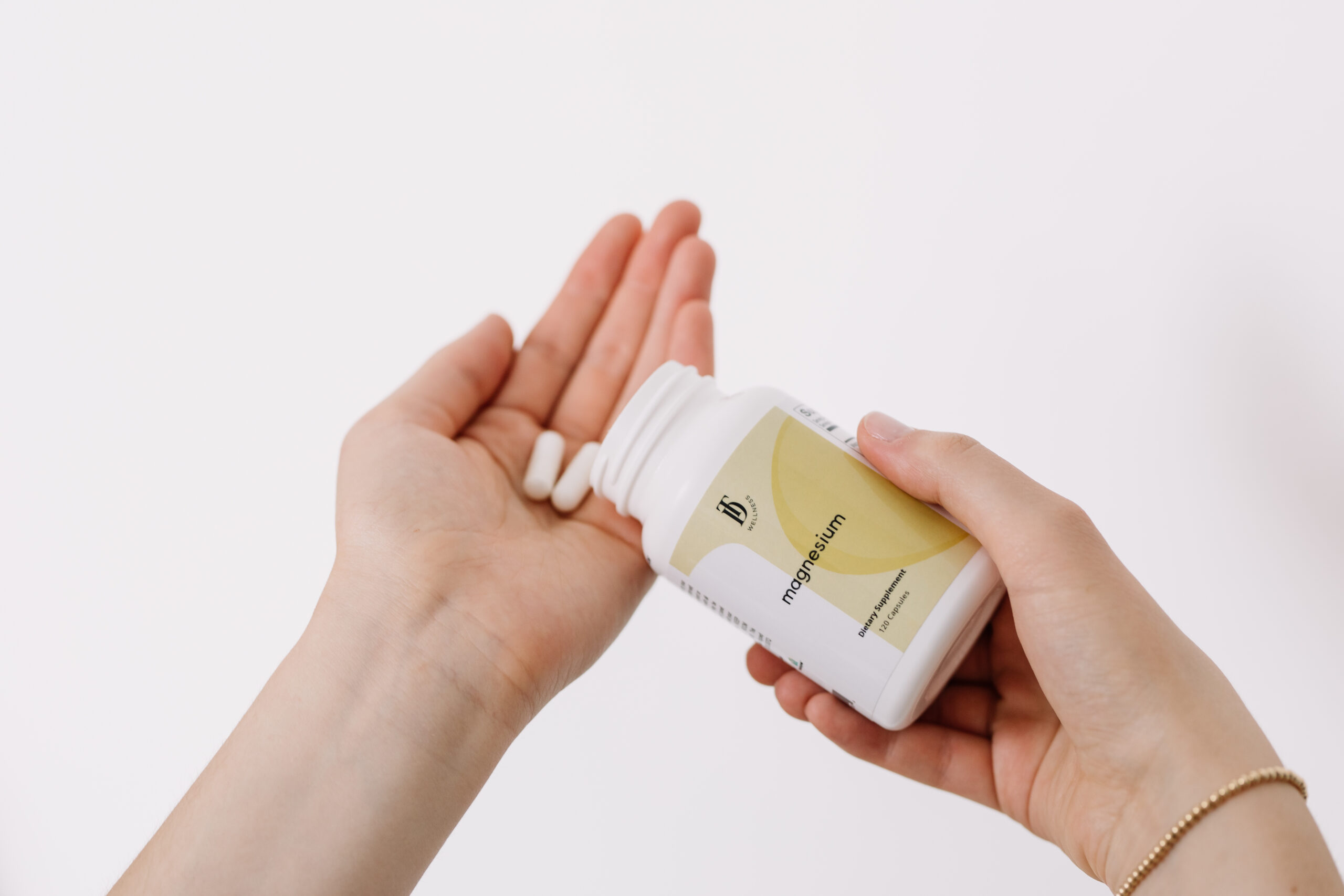The Difference Between a Food Sensitivity vs Allergy (And How to Test)

Did you know that even if you don’t have a severe food allergy, your immune system could still be reacting to the foods you eat? And this trigger could be the root cause behind your daily nagging symptoms.
Because food allergies are mostly known to cause an immediate severe reaction, food sensitivities are hard to diagnose and are often missed (by both the patient and the provider).
Today’s article will cover the difference between food sensitivity vs a food allergy and how to test for them.
Food Sensitivity vs Allergy
What Is a Food Allergy?
If you have a food allergy, it can trigger an immune response by releasing antibodies (IgE), causing your body to react as if the food is a threat. This reaction can be set off with even the smallest amount of food.
What happens when you ingest a food and you are allergic to it, food-specific antibodies (IgE) bind to receptors on your mast cells. This binding stimulates the release of histamines, cytokines, and other inflammatory molecules.
With a food allergy, you will experience symptoms almost immediately. These symptoms can include: hives, itching, and even anaphylaxis (i.e. swelling of your tongue or airways), constriction in the throat, rapid pulse, dizziness, and/or fainting.
If you have a food allergy, you’ll likely need to carry an EpiPen with you at all times just in case you accidentally consume something that has been contaminated.
Common Food Allergies
Ninety percent of food allergies are attributed to only 8 foods. Here are the 8 top foods that cause allergic reactions.
-
milk
-
eggs
-
peanuts
-
soy
-
wheat
-
tree nuts (for ex: walnuts + cashews)
-
fish
-
shellfish (for ex: shrimp)
What Is a Food Sensitivity?
Food sensitivity will not cause anaphylaxis, no matter how much of the offending food is consumed. This is the biggest difference between food sensitivities and food allergies. This is why food sensitivities are often overlooked…the symptoms are not as severe or don’t always have immediate consequences.
Food sensitivities cause a release of IgG antibodies where the symptoms are usually much more subtle and can last much longer than the traditional IgE allergies.
The IgG antibodies lead to inflammation but not through histamine release, so you won’t experience the immediate hypersensitivity reactions of itching, hives, and swelling.
By now you might begin to see why it’s possible to have a food sensitivity but not even know you have one! This is because 1.) The symptoms can show up hours or even days after you ingest that particular food. Or 2.) because the symptoms may not be as apparent as those of an allergy. But in reality, sensitivities can wreak havoc on your cells, leading to more serious symptoms in the future if inflammation is left untreated.
Continuing to eat foods to which you are sensitive can increase inflammation in your body, contributing to a plethora of health conditions and dysfunctions.
Your gut has a mesh-like lining, and when this lining becomes inflamed, it starts to open up and those “holes” become bigger (like a chain-linked fence). This is known as leaky gut syndrome, and it can allow bacteria and partially digested food molecules to travel to your bloodstream, where they are seen as foreign invaders to your body.
Unfortunately, this can ramp up your immune response, causing widespread inflammation throughout your body. And if you’re eating foods to which you’re sensitive day after day or even multiple times a day, you’re setting up an environment within your body that is perfect for chronic diseases.
Food Sensitivity Symptoms Include:
-
runny or stuffy nose
-
headaches/migraines
-
asthma, wheezing, chronic cough
-
diarrhea, loose stools, constipation, irritable bowel syndrome
-
indigestion
-
recurrent urinary tract infections
-
PMS
-
hives, eczema, psoriasis, acne
-
muscle and joint pain
-
fatigue
-
anxiety
-
mood swings
-
brain fog
Common Food Sensitivities*
-
Dairy
-
Gluten
-
Sugars
-
Eggs
-
Soy
-
Caffeine
*Please note that this doesn’t mean these foods are causing inflammation in your body. Your body could be just fine with these foods. On the other hand, your body could be reacting to even “healthy” foods, like kale and blueberries, except it’s causing inflammation & unpleasant symptoms for you. This is why it’s so important to test your body for food sensitivities.
How to Test for Food Allergies + Sensitivities
The best way to figure out if you have a food sensitivity vs allergy AND what specific foods (and ingredients) are causing your body to react, is to test, not guess!
Testing for Food Allergies
A blood test or finger prick can measure your immune system’s response to particular foods. Food allergy tests measure the allergy-related antibody known as immunoglobulin E (IgE). This is usually done by a healthcare professional. The way that I test for food allergies in my practice is via traditional labs such as Quest or LabCorp. They have both environmental and food allergen panels.
Testing for Food Sensitivities
Some providers recommend the elimination diet to pinpoint foods that may be contributing to your symptoms. This is where you avoid the foods for a period of time and then introduce one food at a time every 3-4 days to observe for a reaction. There are also quite a few food sensitivity tests on the market.
Most Functional Medicine providers can get their patients access to this testing. The goal would be to temporarily avoid reactive foods while focusing on healing the gut.
Functional Medicine providers have a deeper understanding of how the immune system works, where ingredients are secretly hiding in foods, and how to craft an optimal game plan to avoid the necessary foods.
You have to be careful with food sensitivity tests because some tests can give you false results. This can encourage you to avoid foods that you actually don’t need to be avoiding.
I recommend using a high-quality food sensitivity test that detects only symptom-provoking lymphocyte reactions. This way only problematic ingredients show up.
This is important because you want to keep eating as many different foods and food groups as possible, as long as they aren’t causing harm. Eating a variety of food helps diversify your gut microbiome and avoid food sensitivities in the first place. So, you don’t want to eliminate food groups unless it’s actually causing issues.
Do symptoms disappear when you avoid food sensitivities?
If you avoid the foods that you are sensitive to, your symptoms may disappear within 2-4 months (this differs from person to person). You could experience migraine/headache-free days, better bowel movement, reduced anxiety, clear thinking, and energy you haven’t felt for years.
How long do you have to avoid foods you are sensitive to?
It’s recommended that you avoid food that you react to for 3-6 months then slowly reintroduce them into your diet to see how your body reacts to them. If you see your symptoms reappear, you may have to avoid them for a bit longer while continuing to get to the root cause.
I hope this article explained the differences between food sensitivity vs allergy. Even though you may not experience an immediate reaction, you could still have chronic inflammation brewing underneath.
If you want to ditch your annoying symptoms, knowing if you have a food sensitivity is essential.
Get Your Gut Right
Performing a functional medicine stool test can be super helpful to identify what is causing your gut to be so reactive to foods. You can start to see how all these issues are interconnected. When one isn’t optimal, it can impact another system or function and vice versa.
If you need access to a stool test, a gut health expert, and personalized protocols, the Get Your Gut Right program might be the right fit for you. This is a comprehensive health reset program that also focuses on nutrition, detox pathways, the nervous system, clean environment, and more. Click HERE to learn more.
Stay Updated With Exciting News at Taylor Dukes Wellness!
We are always working on new ways to serve you on your health journey. Be the first to know about new offerings, health articles, and more by clicking here and filling out your information so we can be in touch.
Share This Post:
Your Wellness Deep Dive
- Be the first to learn about new healthy living resources, blog posts, and exclusive TDW offerings by getting on my insider list.
- Find healthy living products with ingredients you can trust – the same ones I personally use for myself and my family – in the TDW Shop. Check out our protein powders, electrolytes, supplements, and more!
- Get personalized support through the TDW Community. When you become a member, you get access to functional medicine expertise from me and my team, functional medicine lab testing and 1:1 consults, a digital library of exclusive wellness content, live monthly Q&As with me, and so much more!
YOU MAY ALSO LIKE:
Helping you get your gut right, improve energy, boost immunity, balance hormones, sleep better and look + feel your best
DISCLAIMER
PRIVACY POLICY
TERMS + CONDITIONS
ACCESSIBILITY
© 2025 Taylor Dukes Wellness
LEARN
SHOP
ABOUT
TDW Community
Free Guides
Blog
TDW Store
Fullscript
About Taylor
Press
Contact
COOKIE POLICY
SITE CREDIT
Trusted Products



